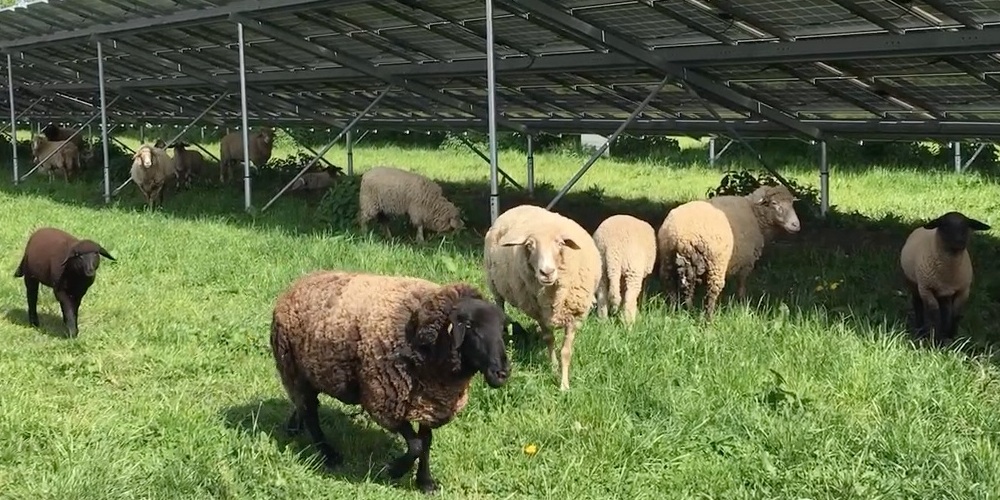On the basis of European Union Directives, French regulations have for more than 10 years, established a principle of strict protectionism regarding “protected species” (“espèces protégées”).
For a long time, PV project developers in France have failed to understand the issue, often because of a lack of information. However, certain local environmental authorities have recently brought some back to sobering reality.
Regulations applying to protected species
Having been condemned several times by the European Court of Justice, France transposed the European Directives regarding the conservation of protected species in 2006.
Whenever a specific interest or the necessity of conserving biological heritage justifies the conservation of non-domestic animal species or non-cultivated plant life, the law prohibits, among other things, the destruction, alteration or degradation of animal or plant species listed in various ministerial orders, as well as the degradation of their specific environment.
Exceptions to the rule
An accurate knowledge of the species present at a project site allows developers to plan measures to prevent and reduce the impacts on the protected species. If these measures are sufficient, no administrative formalities related to the regulation of protected species will be necessary. If the measures are not sufficient, however, a request for derogation – a partial exception of the law – can be submitted.
Derogations can be granted by the Prefect (Préfet) or the Minister in charge of nature protection, depending on the kind of species at stake. However, obtaining one is often a real uphill battle, as it is subject to three cumulative, very stringent conditions:
- There is no other satisfactory solution;
- Tthe derogation shall not adversely affect the maintenance in a favorable state of conservation of the populations of species concerned in their natural area of distribution; and
- The exemption shall be justified by one of the five grounds listed in Article L. 411-2, I, 4° of French Environmental Code, the only one applicable to PV projects being the “imperative reasons of overriding public interest”.
If a derogation is submitted, construction work on a PV project can only start after it has been obtained. Failing that, the local administration could issue a stop-work order and require the developer to resolve the situation within a certain timeframe. Carrying out a project without having requested a derogation when one was necessary could result in criminal action.
The issues at stake
The appetite for large ground-mounted solar power plants (over 250 kWp) in France shows no signs of decreasing. Such projects must obtain a building permit, and carry out an environmental impact assessment (EIA) and public consultation.
With the regulations applicable to building permits being independent from those related to protected species, developers must ensure that their projects comply with the latter.
Over the past few years, local environmental authorities in some French regions have sought to address concerns from associations opposed to large-scale PV projects by “inviting” project developers to submit derogation requests.
It is essential that these requests are prepared with the utmost consideration, if they are to be granted.
How to prevent issues from arising
To avoid violating regulations on protected species, ground-mounted PV project developers should first identify the species on-site that benefit from protection and the potential effects of the project on them.
They must then identify the measures they will take to prevent impacting the protected species, in the EIA. If these measures are not sufficient, further measures to reduce the impact must be planned and described in the assessment.
Wherever a “significant residual impact” (“impact résiduel significatif”) still exists, according to the EIA, despite the application of measures planned to prevent and reduce the impacts of the project, a derogation must be requested. As such, the third part of the well-known principle of European and National Law – “Prevent, Reduce, Compensate” – applicable to EIAs shall not be considered to assess whether a derogation is necessary, which is very often overlooked by developers.
Once a developer concludes that a derogation is necessary, they need to include in their derogation request file an environmental assessment (DIFFERENT), which identifies:
- The species benefiting from protection measures at the site of the project and in its immediate vicinity,
- A population count, and
- The effect of the project on both this population and any neighboring populations.
The assessment shall further describe the measures planned to prevent or, failing that, to reduce and, as a last resort, to offset the negative impact of the project on the affected population of the protected species.
According to the Circular of January 21, 2008, the compensatory measures must have a real probability of success, be based on the best available knowledge and experience and be implemented before the beginning of the works or, where this is compatible with their effectiveness, at least simultaneously.
Derogations can only be granted if the applicant demonstrates that all the above mentioned conditions are met.
Account shall also be taken of the following points in the derogation request file:
- Regarding the absence of “other satisfactory solutions”: The developer shall demonstrate that all possible means were sought to avoid having to request a derogation. The appraisal of whether an alternative is satisfactory or not must be founded on objectively verifiable factors, such as scientific and technical considerations. The final solution selected must be limited to the extent strictly necessary to resolve the specific problem or situation.
- Regarding the duty “not to adversely affect the maintenance in a favorable state of conservation of the populations of species concerned”: The developer has to describe in the derogation request file the initial state of conservation and to demonstrate that various parameters (population dynamics, range, sufficient habitat, prospects of long-term viability) will be maintained. With or without compensatory measures, the effect of the derogation granted must be neutral or positive on the conservation status of the concerned species.
- Regarding the “imperative reasons of overriding public interest”: French administrative jurisdictions balance the public interest invoked by the applicant and the interest of species conservation. The Montpellier Administrative Tribunal upheld that PV projects are in line with French energy policy and therefore meet the criterion of the “imperative reason of overriding public interest” to be demonstrated to obtain the derogation.
To summarize, it is crucial for PV project developers to keep in mind the issues related to protected species at the outset of the project. To this end, technical and legal supports are highly recommended.
 Anouk Darcet-Felgen has been a partner at BMHAVOCATS since 2001 and has been leading the firm’s energy law department since 2004. As an expert in the energy sector, her practice encompasses litigation as well as advice to suppliers, public stakeholders and European and international leaders in the production of renewable energy and the construction of power plants. Her in-depth knowledge of the stakes of the market enables her to accompany her clients through all aspects of their operations, from project development to the construction and operation of facilities, from the legal audit and daily support through to the drafting and negotiation of contracts and the resolution of conflicts. She advises and provides support to her clients in their own language -French, German, English, Spanish, and Luxembourgish.
Anouk Darcet-Felgen has been a partner at BMHAVOCATS since 2001 and has been leading the firm’s energy law department since 2004. As an expert in the energy sector, her practice encompasses litigation as well as advice to suppliers, public stakeholders and European and international leaders in the production of renewable energy and the construction of power plants. Her in-depth knowledge of the stakes of the market enables her to accompany her clients through all aspects of their operations, from project development to the construction and operation of facilities, from the legal audit and daily support through to the drafting and negotiation of contracts and the resolution of conflicts. She advises and provides support to her clients in their own language -French, German, English, Spanish, and Luxembourgish.
 With a public law background particularly in urban planning, Laurence Duriez practiced in a law firm specialized in that field. Thereafter, she worked as legal counsel for one of the leading wind farm developers before joining BMHAVOCATS.
With a public law background particularly in urban planning, Laurence Duriez practiced in a law firm specialized in that field. Thereafter, she worked as legal counsel for one of the leading wind farm developers before joining BMHAVOCATS.
Her field of competence covers both litigation and counselling in the renewable energies and public law sector.
The views and opinions expressed in this article are the author’s own, and do not necessarily reflect those held by pv magazine.
This content is protected by copyright and may not be reused. If you want to cooperate with us and would like to reuse some of our content, please contact: editors@pv-magazine.com.



By submitting this form you agree to pv magazine using your data for the purposes of publishing your comment.
Your personal data will only be disclosed or otherwise transmitted to third parties for the purposes of spam filtering or if this is necessary for technical maintenance of the website. Any other transfer to third parties will not take place unless this is justified on the basis of applicable data protection regulations or if pv magazine is legally obliged to do so.
You may revoke this consent at any time with effect for the future, in which case your personal data will be deleted immediately. Otherwise, your data will be deleted if pv magazine has processed your request or the purpose of data storage is fulfilled.
Further information on data privacy can be found in our Data Protection Policy.